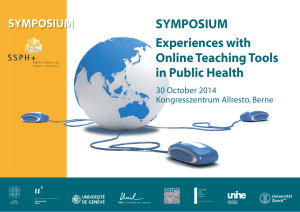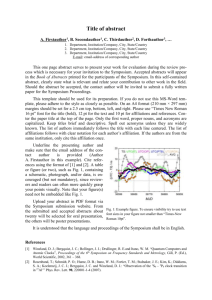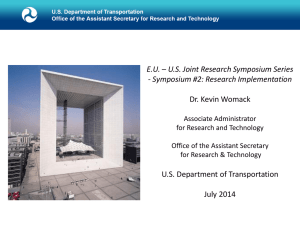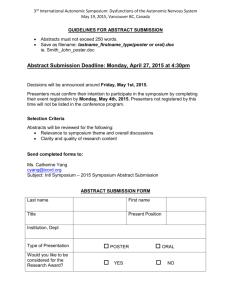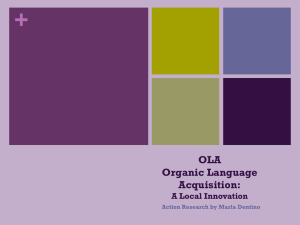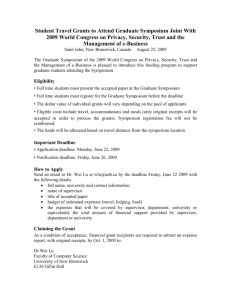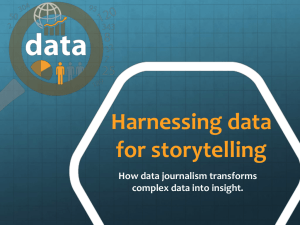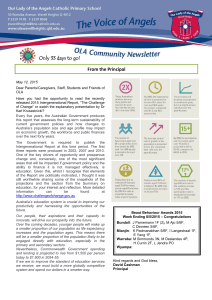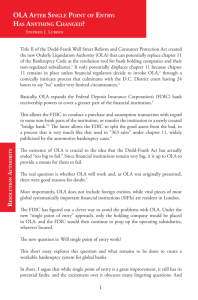Summary Report MDRG 2015
advertisement
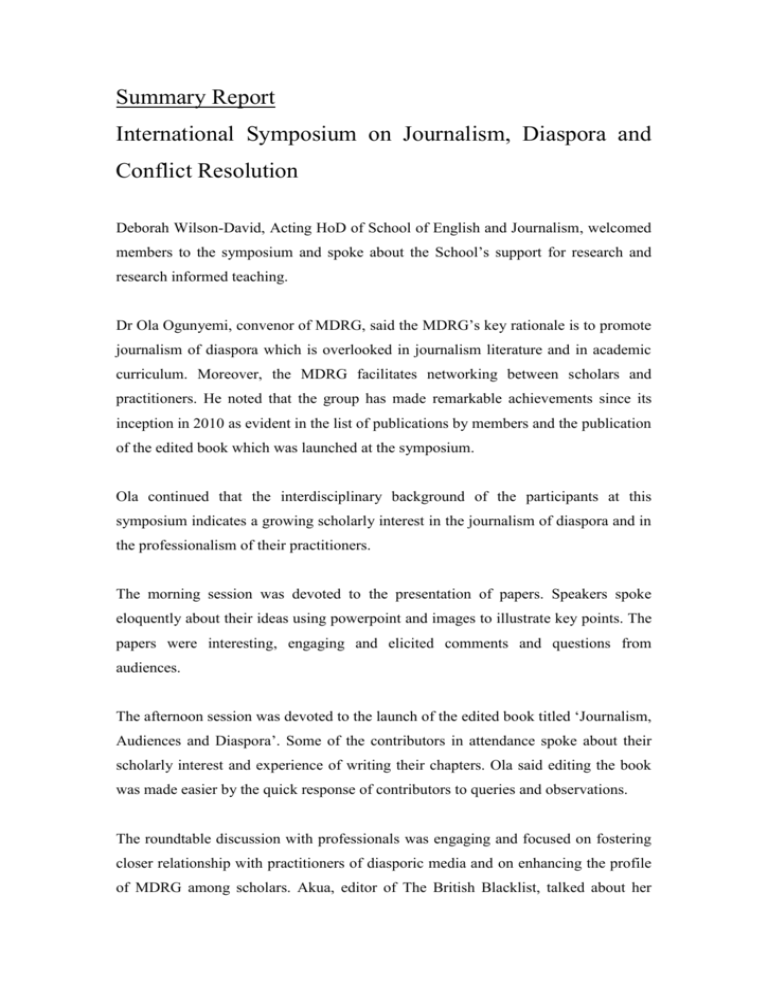
Summary Report International Symposium on Journalism, Diaspora and Conflict Resolution Deborah Wilson-David, Acting HoD of School of English and Journalism, welcomed members to the symposium and spoke about the School’s support for research and research informed teaching. Dr Ola Ogunyemi, convenor of MDRG, said the MDRG’s key rationale is to promote journalism of diaspora which is overlooked in journalism literature and in academic curriculum. Moreover, the MDRG facilitates networking between scholars and practitioners. He noted that the group has made remarkable achievements since its inception in 2010 as evident in the list of publications by members and the publication of the edited book which was launched at the symposium. Ola continued that the interdisciplinary background of the participants at this symposium indicates a growing scholarly interest in the journalism of diaspora and in the professionalism of their practitioners. The morning session was devoted to the presentation of papers. Speakers spoke eloquently about their ideas using powerpoint and images to illustrate key points. The papers were interesting, engaging and elicited comments and questions from audiences. The afternoon session was devoted to the launch of the edited book titled ‘Journalism, Audiences and Diaspora’. Some of the contributors in attendance spoke about their scholarly interest and experience of writing their chapters. Ola said editing the book was made easier by the quick response of contributors to queries and observations. The roundtable discussion with professionals was engaging and focused on fostering closer relationship with practitioners of diasporic media and on enhancing the profile of MDRG among scholars. Akua, editor of The British Blacklist, talked about her interest in starting a journalism diversity project that will involve journalists and scholars. Ola said the MDRG platform is suited for that and suggested a networking agenda. The roundtable discussion concluded with three action plans. The first was a networking project with clear objectives and identification of sources of funding. The second was to publish an edited book on the theme of the symposium. Ola said an informal discussion on the book idea with Palgrave elicited a positive response. But we don’t have enough chapters for a book. It was suggested that we review the ‘Call for Papers’ and re-advertise it via academic outlets such as ECREA, Conference Alerts, MeCCSA, AEJMC, and IAMCR. The third was the nomination of steering committee members. They are: Ola Ogunyemi, Convenor of MDRG Andrea Hickerson (North America’s Rep), Amira Halperin (Middle East Rep), Shepherd Mpofu (Africa’s Rep) and Aku Gyamfi (Practitioners’ Rep). In concluding the symposium, members agreed to hold MDRG symposium biennially and to undertake a networking activity in the gap between. As a result, the next MDRG symposium will take place in 2017 at a venue to be announced later. Ola informed members that we received offers to host it from Nigeria, South Africa, UAE and Israel. In choosing a host, members would consider and explore availability of funding to cover travel expenses for keynote speaker(s) and/or to subsidise travel costs for PhD students. The theme of the MDRG 2017 symposium will be announced late 2016 and members proposed that a selection of the papers be published in a refereed journal. By: Dr Ola Ogunyemi Convenor, MDRG October, 2015.
